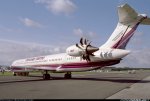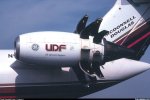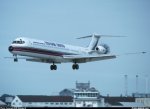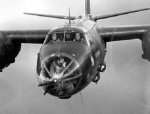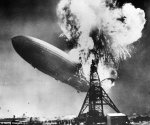- 18,139
- 27,242
- 113
- Location
- Burgkunstadt, Germany
Ahab and Tracer both have valid points.
It's all about trust. When people trust a system, or principle, they have an easier time accepting it. People have learned to trust pilots. And mostly that trust is well placed. At the end of the day, flight is the safest means of travel. When the pilot starts his takeoff speech, that voice just speaks and sounds like TRUST. TRUST me, I am THE PILOT. And 99.999999999 percent of the people do. We all seem to forget, commercial flight is about 99.98 percent automated. Takeoff and landing is hands on. Nothing more, under "ordinary circumstances".
Most major aircraft producers have long produced automated systems for takeoff and landing also. It's the pilots who would rather fly hands on, for takeoffs and landing. They feel better when they have control.
General Dynamics produced a plane, the F-111, that could fly a mission start to finish, after being programed. My father was involved in the program. He told me of stories he heard from the horse's mouth. Planes flying back to base and landing when the crew were not able to do so. This was back in the 60's. We have the technology to do this sort of thing. It's been around a long time. We see it every day. Our space program is mostly automated. BUT, we see also that it doesn't always work as advertised. Things go wrong. And that is where the pilot comes in. It's those not so "ordinary circumstances" that are the reason pilots make good money. And sometimes they fail also.
In the early days of development and testing of the F-111, the TFR, Terrain Following Radar, was a huge step forward in flight technology. This was what made the F-111 a Bird to be feared. Set the TFR to 100 meters above the ground, and that plane would adjust itself, if it flew over a beer can. It was good. The only problem with it was trust. The pilots didnt trust it. They tried to take control of the plane back when their reactions were way too slow, for a maneuver. It rarely ended well. And the Bird had a bad name until the crew learned to let the plane fly.
It's all about trust. When people trust a system, or principle, they have an easier time accepting it. People have learned to trust pilots. And mostly that trust is well placed. At the end of the day, flight is the safest means of travel. When the pilot starts his takeoff speech, that voice just speaks and sounds like TRUST. TRUST me, I am THE PILOT. And 99.999999999 percent of the people do. We all seem to forget, commercial flight is about 99.98 percent automated. Takeoff and landing is hands on. Nothing more, under "ordinary circumstances".
Most major aircraft producers have long produced automated systems for takeoff and landing also. It's the pilots who would rather fly hands on, for takeoffs and landing. They feel better when they have control.
General Dynamics produced a plane, the F-111, that could fly a mission start to finish, after being programed. My father was involved in the program. He told me of stories he heard from the horse's mouth. Planes flying back to base and landing when the crew were not able to do so. This was back in the 60's. We have the technology to do this sort of thing. It's been around a long time. We see it every day. Our space program is mostly automated. BUT, we see also that it doesn't always work as advertised. Things go wrong. And that is where the pilot comes in. It's those not so "ordinary circumstances" that are the reason pilots make good money. And sometimes they fail also.
In the early days of development and testing of the F-111, the TFR, Terrain Following Radar, was a huge step forward in flight technology. This was what made the F-111 a Bird to be feared. Set the TFR to 100 meters above the ground, and that plane would adjust itself, if it flew over a beer can. It was good. The only problem with it was trust. The pilots didnt trust it. They tried to take control of the plane back when their reactions were way too slow, for a maneuver. It rarely ended well. And the Bird had a bad name until the crew learned to let the plane fly.
Last edited:




